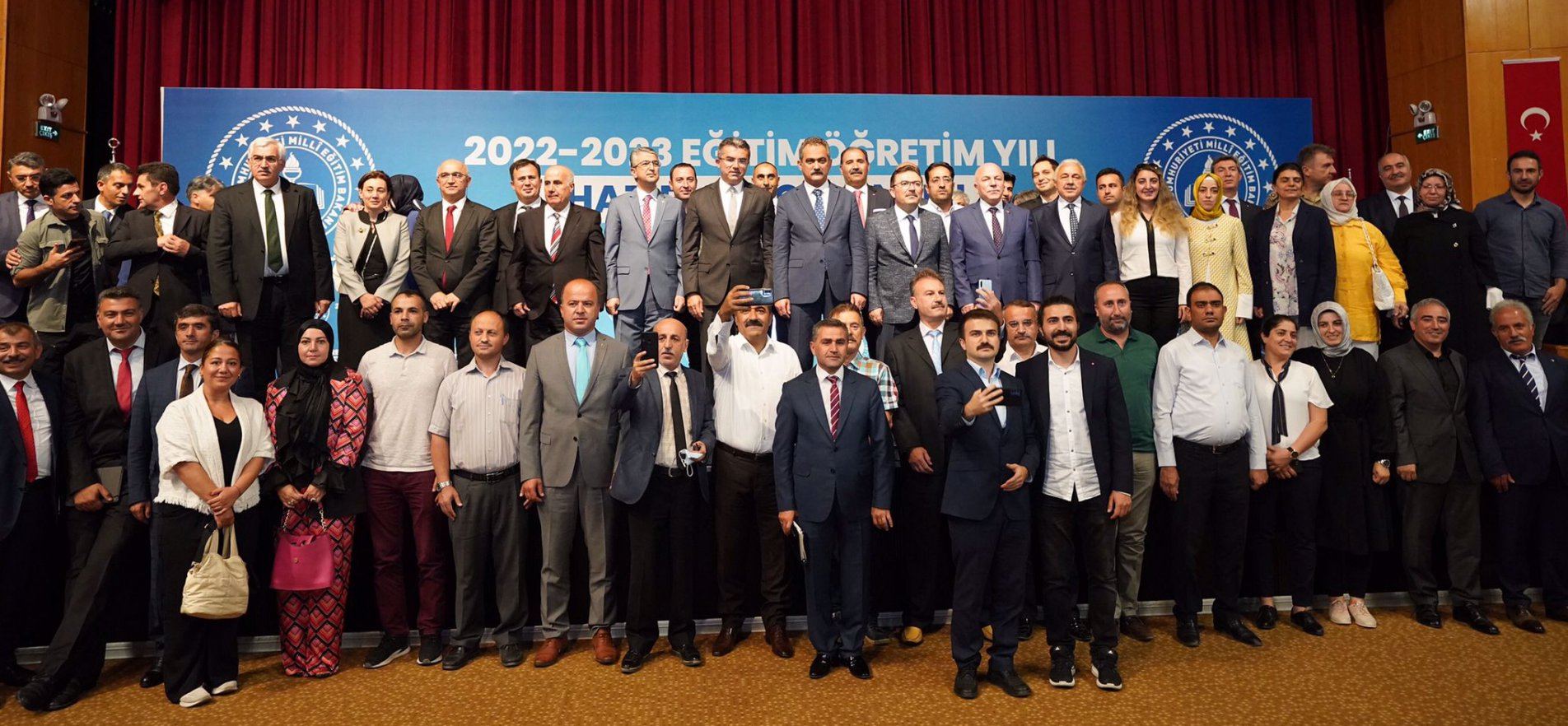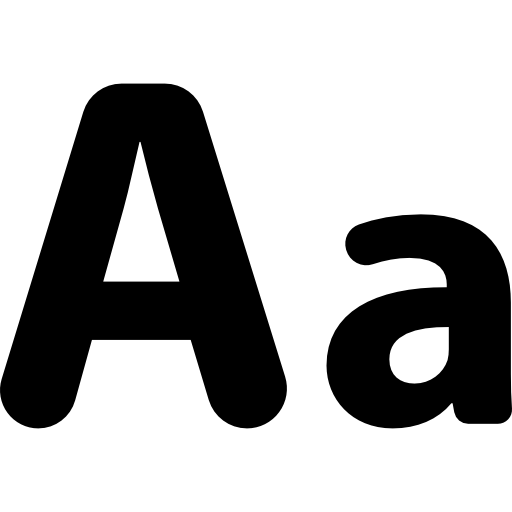Addressing school principals, Minister of National Education Mahmut Özer noted that Türkiye managed the Covid-19 process successfully and thanked them for their contributions in adamantly continuing face-to-face education without any interruption.
Stressing that keeping schools open was a matter of social security, Özer said, "Now, we are stronger against any possible pandemic. We all show that schools must close last and open first. We have the ability to keep our schools open by taking all necessary measures."
Özer mentioned that the country has written a 2 dimensional success story in the last 20 years adding that accession to education in all levels of education increased during this period.
"In the 2000s, there were approximately 300,000 classrooms in the education system and today we have 855,000 classrooms. In other words, our education system has nearly 1 million classrooms. These investments caused an important increase in the schooling rates. Schooling rate for 5 year old children which was 11 percent in the 2000s reached 93 percent today and schooling rate in secondary education which was 44 percent exceeded 90 percent. Schooling rate in higher education increased from 14 percent to 48,5 percent," said Özer.
Özer mentioned that antidemocratic practices in the education system such as headscarf ban and coefficient practice were eliminated during the last 20 years and Türkiye achieved the massification process with a 70 years delay.
"Winners of this process are our people, our daughters and women. Schooling rate of female students in secondary education increased from 39,2 percent to 90 percent in the last 20 years. Schooling rate of female students in higher education has been exceeding the number of male students since 2014. In other words, this county has no problem concerning education as long as opportunities are provided and as long as there are no other social engineering projects," said Özer.
Concerning coefficient practice that prevented graduates of vocational high schools from enrolling in higher education, Minister Özer stressed that this practice caused a serious harm in vocational education.
"It was the reason why academically successful students distanced themselves from vocational education and why the labor market failed to find the quality of workers. It was the source of success differences among schools. Our country paid the price of this wrong policy," stated Özer.
Özer noted that the number of teachers in the education system was around 500 thousand in the 2000s and now there are 1,2 million teachers and 19 million students.
Minister Özer thanked President Recep Tayyip Erdoğan for his leadership in order to compensate for the 70 years delay in 20 years adding that, "Now, we prioritize three issues. First is the dissemination of preschool education. Second is vocational education and third is the training programs for the professional and personal improvement of teachers."
Minister Özer announced his goal concerning preschool education as follows, "On August 6, 2021, schooling rate among 3 year old children was 14 percent; it was 35 percent among 4 year old children and 78 percent among 5 year old children. Our goal was to increase the schooling rate among 3 year old children from 14 percent to 50 percent, among 4 year old children from 35 percent to 70 percent and among 5 year old children from 78 percent to 100 percent. Within this framework, we have decided to open 3,000 new kindergartens and 40,000 preschool classes. Within 10 months, we opened 758 kindergartens and 9,000 preschool classes. During this period, schooling rate among 5 year old children reached 93 percent,"
Özer mentioned that vocational education is a crucial and prior issue of his Ministry as it responds to the demands of the labor market and balances the secondary education system.
"After the lift of coefficient practices, our ministers and bureaucrats worked in an effort to reinforce vocational education. We have changed the paradigm. We included the labor market to the education process. We have updated curriculum, planned skill training programs and organized on the job and professional development training programs for teachers together. As a result, academically successful students started to prefer to enroll in some of our vocational schools. On the other hand, we increased the production capacity of vocational schools. Income of vocational high schools increased from 200 million liras to 1 billion and 162 million in 2021. Moreover, these schools produced the most needed products during the pandemic. We also focused on intellectual and industrial property rights," noted Özer.
Özer stated that an amendment in the Vocational Education Law No. 3308 turned vocational schools into an attractive mechanism for both employers and students.
Number of foremen and apprentices enrolled in the vocational education system was 159 thousand before the amendment and it reached 670 today and the Ministry aims at enrolling 1 million students in the vocational education centers until the end of this year.
Özer stressed that the third prior concern of his Ministry is to support professional and personal development of teachers and reminded that an education system is as strong as its teachers.
"Most important step within this context was the Teaching Profession Law which came into force on February 14, 2022. It transformed teaching to a career system. We included expert teaching and head teaching concepts which highlights our view as teaching is a lifelong learning profession. Approximately 603,000 teachers applied to expert and head teaching positions. 70,000 of these applications were for head teaching. As of July 18, we organized training programs for these applicants through the Teacher Information Network. Expert teacher candidates will attend 180 hour long and head teacher candidates will attend 240 hours long training programs," said Özer.
He stressed that his Ministry is implementing three different methods about development training programs. The Ministry plans general training programs as well as school based training programs. Secondly, it initiated a teacher and school administrator mobility program. Thirdly, there are the professional development groups.
"We have seen the outcome of these methods within a short period of time. In 2020, the number of teachers who attended the training programs organized by our Ministry was 1,2 million and training program hours per teacher was approximately 44 hours. After August 2022, this figure reached 94 hours. As of June, the Ministry gave 5,5 million certificates to teachers. Our goal is to give at least 120 hours training to each teacher until the end of 2022. We have increased the budget allocated for training programs by 35 times. Budget allocated to these programs was 8,9 million in 2021 and it was increased to 292 in 2022," noted Özer.
Minister Özer stated that they have started preparations for the 2022-2023 school year in all cities of the country earlier this year. They also revised education policies since the end of the last school year and have considered all items including cleaning supplies to minor repairs in the budget allocation for the new school year preparation.
He noted that the Ministry of National Education has the means and power to respond to all needs of schools and parents do not have the obligation to make donations during the registration.
"As our President announced earlier, we will distribute free text books as well as free supplementary sources to all of our students. Together, we will write different success stories. All we need during these hard days is unity and solidarity. Most important mechanisms to display these to the public are schools and our education system," said Özer.





























